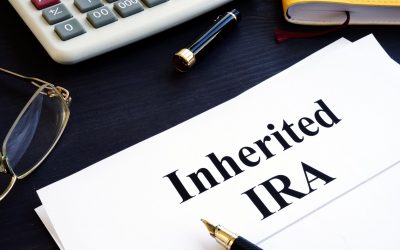
People are retiring differently today than in the past – just think, will you retire exactly like your parents did? Probably not. Retirement is no longer about the end of a career; it’s about the beginning of a new, often quite active phase of life that could last decades. And while this is something to celebrate, it also requires a plan to make savings last a lifetime. Here’s how retirement has changed and what you can do to plan ahead.
Today’s Retirees May Have a Greater Tax Burden
Retirees of previous generations may not have worried about their tax burdens as much. Their incomes may have been lower, and they did not have tax-deferred retirement accounts. Taxes may be relatively low right now compared to later in your retirement. Most of the provisions in the Tax Cuts and Jobs Act will expire at the end of 2025, and President Biden recently indicated where tax rates could be headed. Recent proposals include eliminating the long-term capital gains rate of 20% for those making over $1 million and instead taxing capital gains at ordinary income rates.[1]
Income tax rates could also increase, and those with tax-deferred retirement accounts need to consider this. Starting at age 72, you must start taking Required Minimum Distributions (RMDs) from your traditional retirement accounts, which could potentially increase your tax burden and cause you to draw down your account faster. By taking advantage of current rates and working with a professional, you can create a long-term tax minimization strategy for retirement.
Low Interest Rates and Potentially High Inflation Can Complicate Retirement Planning
Interest rates are at historic lows and could stay low for the rest of your life. If you can’t expect to earn much from your savings account or CD, what other investment options could you consider? Due to the potential for high inflation, you may need to continue to grow your wealth in order to help make it last the rest of your life. There are a number of ways to do this, including guaranteed lifetime income payments, maximizing your Social Security benefit, and creating a retirement investment strategy designed to fit your risk tolerance.
You’re More Likely to Need Long-Term Care
An estimated 70% of today’s 65-year-olds will need long-term care at some point[2] and costs can be staggering. Medicare doesn’t necessarily cover costs, and Medicaid is difficult to qualify for, leaving many retirees on their own. In 2020, the median yearly cost for an in-home health aide was $54,912, and the median yearly cost for a private room in a nursing home was $105,850.[3] There are several options for covering costs and deciding on one can be an important part of a comprehensive financial plan.
The bad news is that many potential risks come with retirement. The good news is that we are here to help you plan for them and adjust your plan as needed. We don’t have a one-size-fits-all approach, and we don’t look at the many elements of your retirement plan as separate. We help our clients create comprehensive retirement plans that take their unique financial situations and needs into account. Sign up for a complimentary review with us to begin planning.



